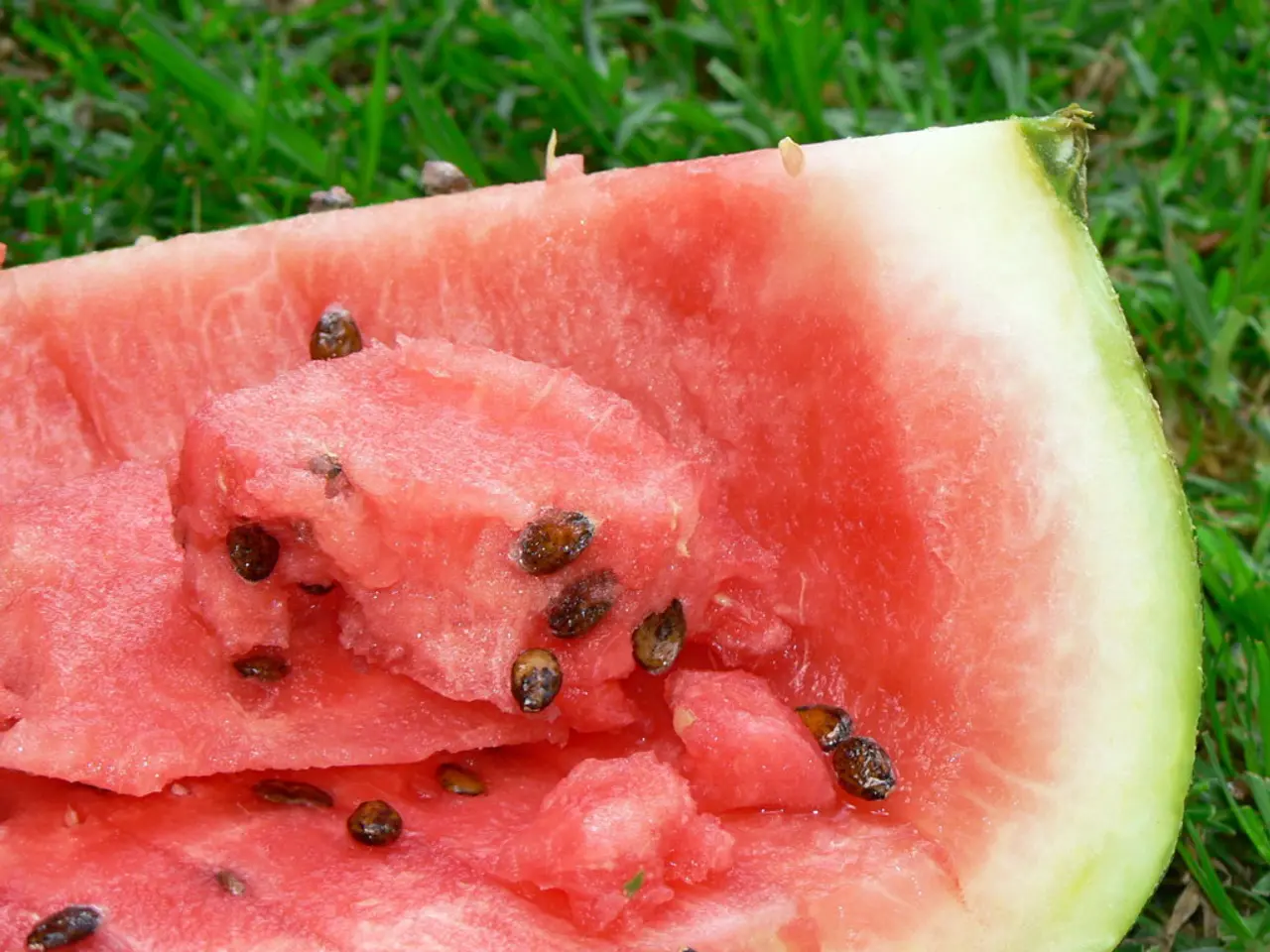Steps to Cultivate Watermelons for Delicious Fruits Throughout the Summer Season
Cultivating Watermelons: A Comprehensive Guide
Watermelons, with their botanical name being Citrullus lanatus, are a popular summer fruit known for their refreshing taste and juicy texture. To grow them successfully, here are some essential tips to follow.
Light: Watermelon plants require ample sunlight, ideally 8 to 10 hours per day, to mature fruit properly.
Water: Consistent moisture is crucial, especially during fruit development. Water deeply at the base rather than overhead to avoid fungal diseases. Reduce watering as fruit matures and stop watering 2 weeks before harvest to improve sweetness.
Temperature: Watermelons prefer warm growing conditions, but specific ideal values are not provided; generally, warm climates support these plants well.
Humidity: Avoid excessive humidity and overcrowding to prevent fungal diseases like powdery mildew. Proper plant spacing and soil-level watering help reduce this risk.
Soil: Use well-draining soil rich in organic matter. Compost-enriched soil supports growth, but because watermelons are heavy feeders, additional fertilizer every 2-6 weeks based on product type is necessary.
Fertilizer: Feed with granular fertilizer about once every six weeks or liquid fertilizer every two weeks during the growing season to support vigorous growth and fruiting.
Common problems, pests, and diseases:
- Pests such as aphids, squash bugs, and cucumber beetles can be controlled with row covers, organic insecticides like neem oil or insecticidal soap, and encouraging beneficial insects such as ladybugs.
- Fungal diseases such as powdery mildew and other fungi occur under humid conditions and poor air circulation. Remove infected leaves and consider preventative milk sprays weekly if mildew is a recurring issue.
- Crop rotation prevents buildup of pests and diseases in the soil.
Planting and Growing:
- Watermelon seeds can be started indoors a month or so before the last spring frost.
- The soil should be warm (around 65 degrees F) before planting watermelons.
- Watermelons need between 8 and 10 hours a day of sunlight to mature.
- The soil should be kept moist to a depth of 6 inches.
- A soil test can help determine any nutrient deficiencies in the soil.
- Different varieties of watermelons have different times to maturity, generally between 70 and 90 days after planting, or 35 to 45 days after flowering.
Miscellaneous:
- Deer are attracted to watermelon foliage and can potentially ruin a crop.
- Applying a balanced fertilizer product is recommended.
- Soil pH for watermelon growth should be between 6.0 and 7.0.
- Watermelon is a ground-level vining plant.
By following these guidelines, you can cultivate healthy and delicious watermelons in your garden. Enjoy the sweet rewards of your labour!
Incorporating watermelons into your home-and-garden or home-improvement project could lead to a bountiful home-grown produce, providing a refreshing addition to your lifestyle. To maximize the success of your watermelon cultivation, give consideration to gardening essentials such as providing ample sunlight, maintaining proper watering and temperature regulations, and ensuring suitable soil conditions.




